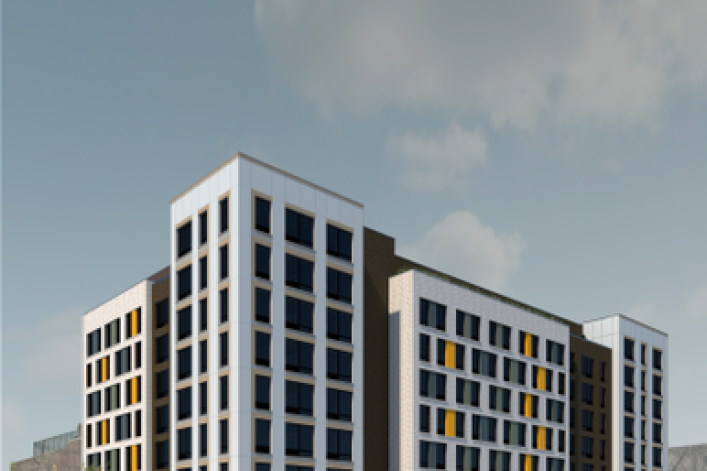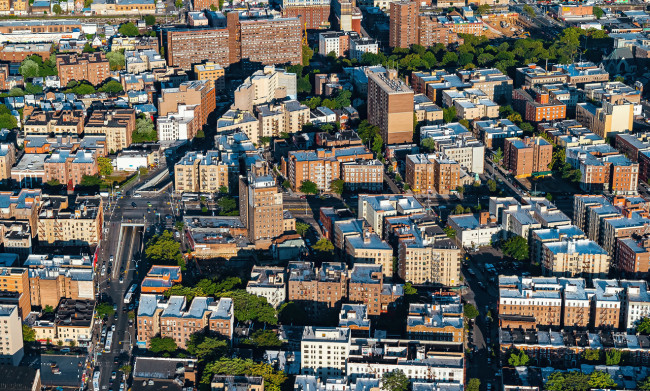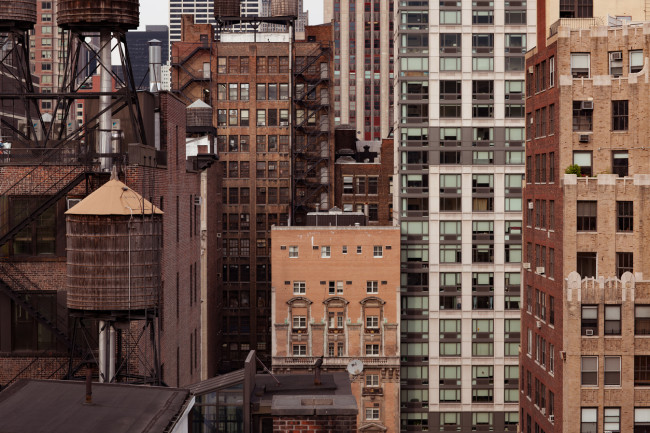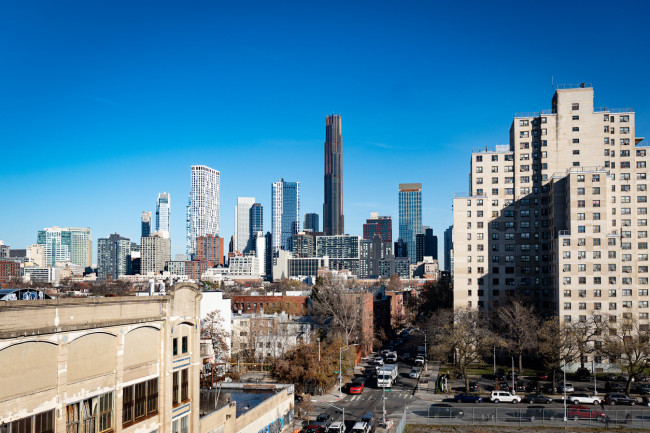Housing lottery launches for 53 apartments in East New York
- New Yorkers who earn $24,515 to $105,060 are eligible to apply and rents start at $617 for a one-bedroom unit
- Of the building’s total of 135 units, 81 apartments are reserved for residents who were previously homeless

The project was stalled for two years due to the pandemic.
NYC Housing Connect
Housing lottery applications are open for 53 rent-stabilized apartments at a new development in the East New York neighborhood of Brooklyn. New Yorkers who earn $24,515 to $105,060 are eligible to apply, depending on the size of the household. Rents start at $617 for a one-bedroom.
The eight-story building at 437 Euclid Ave. has a community center, childcare, and an on-site supportive services center, according to developer Mega Contracting Group. It’s located one block from the Euclid Avenue A and C train subway station.
Developed by Mega, the Lantern organization, and WRS Associates, the building will hold 135 units total with 81 reserved for residents who were previously homeless, according to Mega. The project was stalled for two years after the 2020 pandemic until it scored an $11.5 million loan needed to start construction, Commercial Observer reported.
The apartments are set aside for New Yorkers earning from 30 to 60 percent of the area median income (AMI)—a metric that depends on how many people you live with. Currently the AMI for New York City is $113,000 for a two-person household. The apartments available include one-, two-, and three-bedroom apartments.
There are 11 two-bedroom apartments available for households earning from $40,286 to $61,000. The rent for these apartments is $1,046.
The developers have set aside 50 percent of the rent-stabilized apartments for applicants who already live in the area. Future lotteries will use a lower ratio as a result of a lawsuit settlement, which claimed the practice of community preference perpetuates segregation and violates the Fair Housing Act. Read: "NYC agrees to cut percentage of housing lottery units set aside for nearby residents."
Another 5 percent of the apartments will be preferentially given to NYC employees, and 27 percent of the units are reserved for New Yorkers who are age 62 or older. A small percentage of the apartments are also set aside for residents with mobility, vision, and hearing needs.
Applications must be submitted online or postmarked no later than April 16th.
If you’re interested and think you might qualify for one of these apartments, you can create a profile and apply online via NYC Housing Connect. For details on this particular lottery, click here. Don’t apply more than once, or you could be disqualified.
Winning a rent-stabilized apartment can be life changing: Rent increases are capped and lease renewals are automatic, providing long-term stability for NYC renters. Need more information on how the housing lottery works? Check out “6 steps for applying to NYC's affordable housing lottery.”
For some advice from successful applicants read “How to land a rental apartment through NYC's affordable housing lottery.” And if you or someone you know is having trouble with the application process, consider reaching out to a housing ambassador in the community.
Note: Brick Underground is in no way affiliated with New York City’s Department of Housing Preservation and Development or the Housing Development Corporation. If you are interested in applying to these or other affordable housing developments, please go to NYC Housing Connect for information and instructions.
Have you successfully won an apartment through the affordable housing lottery? If you have first-person advice to share about the process, we’d love to hear from you. Please send us an email. We respect all requests for anonymity.


























